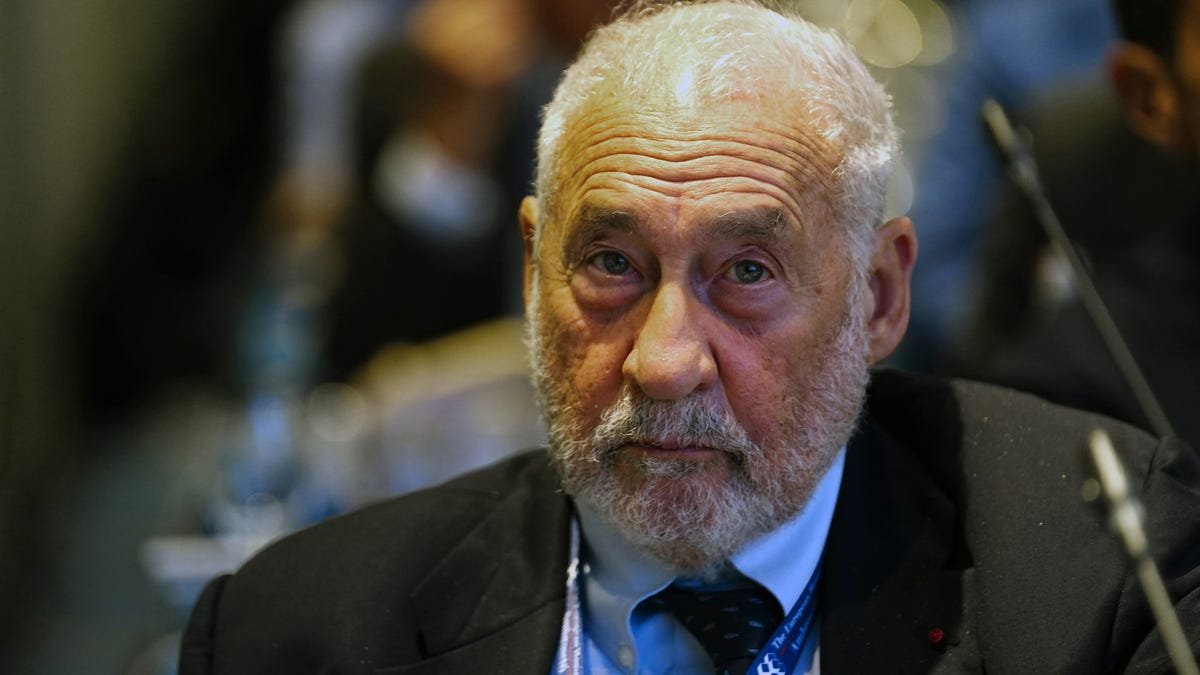A version of this interview originally appeared in Quartz’s members-only Weekend Brief newsletter. Quartz members get access to exclusive newsletters in your inbox and more. Sign up here.
Former President Donald Trump’s economic plan would be a “disaster” for the U.S., and implementing his proposed tariffs on Chinese imports would make inflation surge, according to a Nobel-prize winning economist.
“If Trump were actually able to get his agenda through, it would be a disaster,” Joseph Stiglitz, who served as chair of the Council of Economic Advisors under President Bill Clinton, told Quartz in an interview.
Stiglitz, who more recently was head of the International Economic Association, said that Vice President Kamala Harris “has been a very steady hand with a set of well-talked-through proposals from the Biden administration.”
“Trump every other day changes his mind about something,” Stiglitz said, arguing that Trump’s planned 50% tariffs on Chinese goods would slam lower- and middle-income Americans. “Those tariffs would create a significant increase in the cost of living, it would be a shock to the economy, and that inflation, in turn, would lead the Fed to raise interest rates.”
Reducing America’s dependence on China can’t be done with a sledgehammer, Stiglitz said. “The Biden-Harris proposal for a 10% tariff is an important signal to the market: ‘You’d better think about diversifying your supply chain.’ And that, I would call good economic management. Good economic policy is balancing multiple concerns, and that kind of balancing is what distinguishes Harris from Trump.”
On the specifics of Harris’ plans, from boosting the child tax credit to planning to build three million new homes, Stiglitz said “the bundle as a whole is moving in the right direction.
“Those are cumulative problems that have been unattended for 30 years,” he said, “and so you’re not going to be able to solve them overnight.”
Harris’ plans would also address the growth of monopolies, which have been holding back U.S. innovation and driving prices higher, Stiglitz said.
“One of the weaknesses in the U.S. economy over the past 20 years has been a significant growth in market power, and that increase in market power reduces innovation, increases inequality, and lowers real wages of ordinary Americans,” he said. “That’s been one aspect of [the Biden-Harris] economic policy that will make a difference.”
Perhaps the biggest difference between Trump and Harris lies in their tax policies.
“The 2017 [Trump tax cut] was an enormous tax cut for the millionaires, and actually a tax increase when it was fully implemented for a large fraction of Americans,” Stiglitz said. “What we need to do is restore tax justice, increase the taxes on the billionaires who can obviously afford it, and help address some of the big problems of inequality that we have, like child poverty.”
Trump’s move to cut the corporate income tax from 28% to to 21% did nothing to improve U.S. competitiveness, it just increased stock buybacks, Stiglitz said.
“Extending [Trump’s] tax cuts when they expire in 2025 and making them deeper would make a huge hole in the deficit,” he said. “Remember, the reason why they expired in 2025 was because the deficit created by the tax bill was so large that even Republicans wouldn’t vote for it.”
“The irony of his policies is that while a lot of support for them may come from people who feel like the system has left them behind,” Siglitz added, “his proposal will leave them even more behind.”





